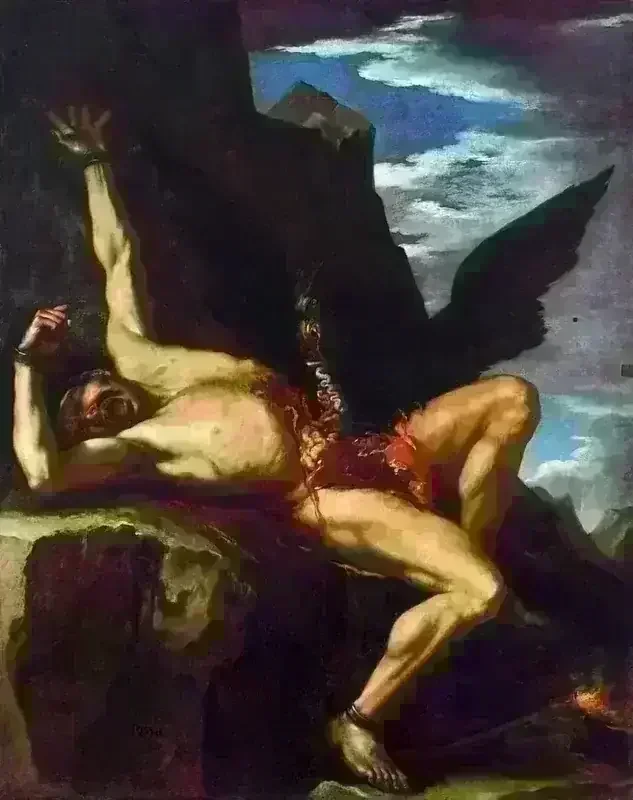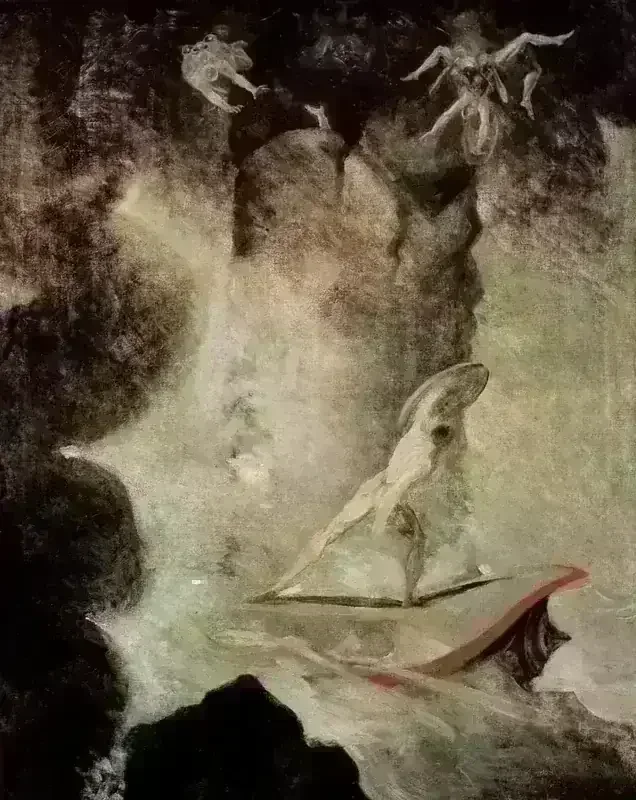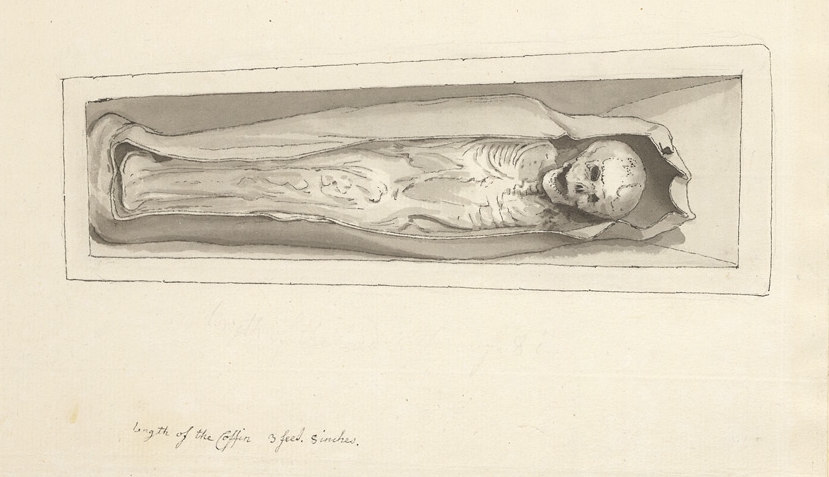Prometheus

In Greek mythology, Prometheus was a divine figure of profound significance, known as the god of fire and humanity's greatest champion. His name, derived from Ancient Greek Προμηθεύς (possibly meaning "forethought"), reflects his reputation for wisdom and foresight.
Prometheus is most famous for his bold defiance of the Olympian gods - stealing fire from them and gifting it to humanity, an act that symbolized the giving of technology, knowledge, and civilization itself. Some versions of the myth also credit him with creating humans from clay, establishing him as both humanity's creator and benefactor. Beyond these acts, he's celebrated as the founder of human arts and sciences, and in some tales appears as the father of Deucalion, the survivor of the great flood.
His punishment for this transgression became one of mythology's most enduring stories: Zeus had him chained to a rock where an eagle would eat his liver daily, only for it to regenerate each night, creating an endless cycle of torment. This continued until the hero Heracles eventually freed him. Ancient Greeks placed this drama at Mount Elbrus or Mount Kazbek in the Caucasus Mountains, at what they considered the edge of the civilized world.
Prometheus also played a crucial role in establishing Greek religious practices, particularly the traditions of animal sacrifice. While he wasn't widely worshipped himself, he held special significance in Athens, where he was associated with Athena and Hephaestus - deities of craft and technology.
His influence extends far beyond ancient Greece. In Western culture, Prometheus became a powerful symbol of human ambition, scientific progress, and the double-edged nature of innovation. This interpretation reached its height during the Romantic era, when Mary Shelley subtitled her novel Frankenstein as "The Modern Prometheus," using his myth to explore the potential dangers of unchecked scientific advancement.
His name in English is pronounced as "prə-MEE-thee-us."


